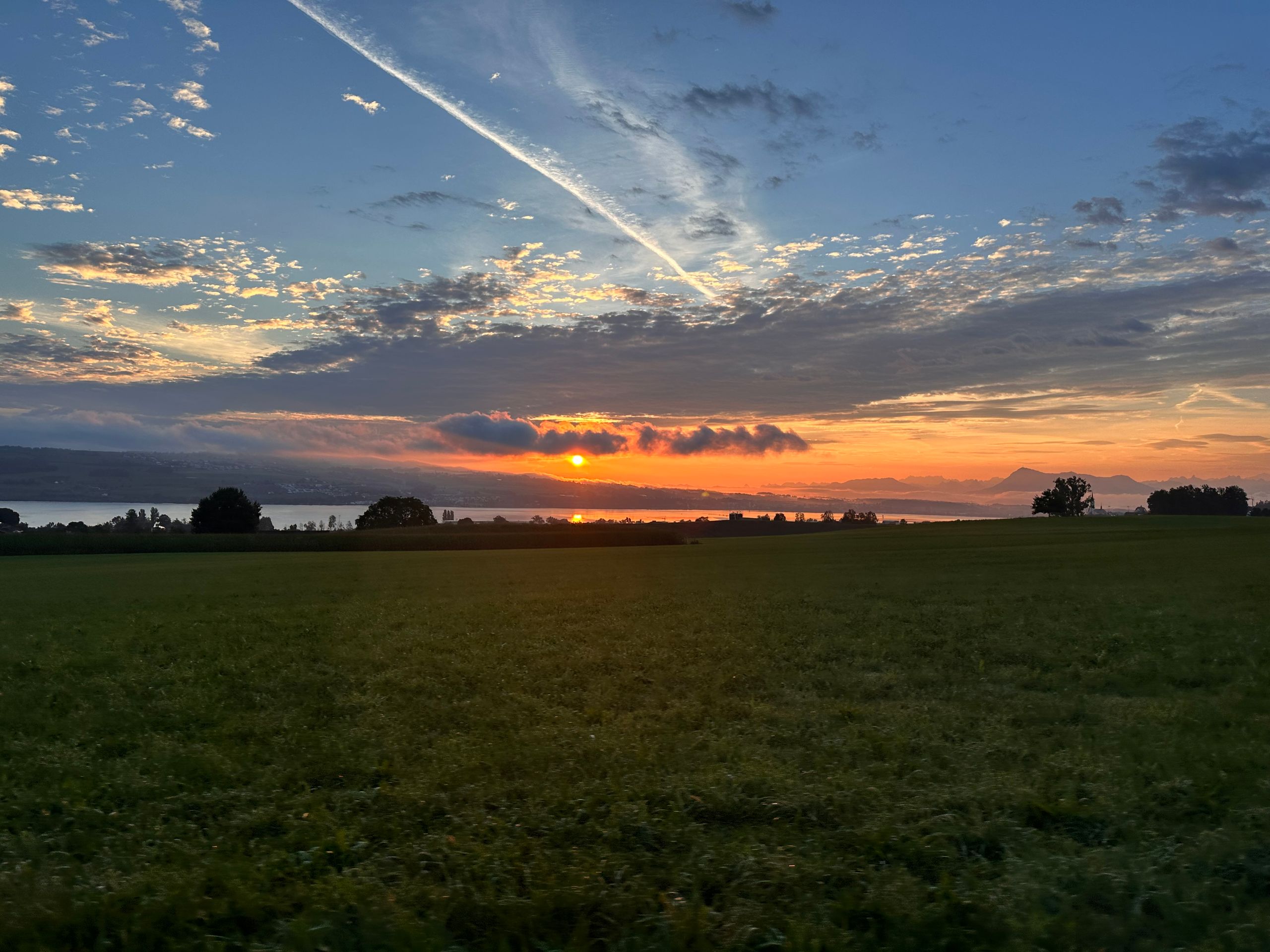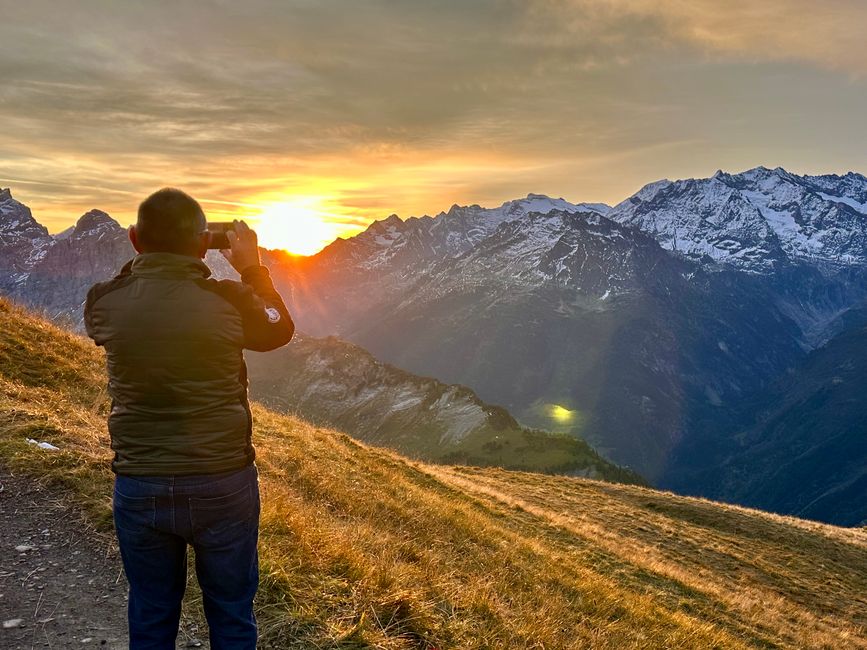Golf d'Aro the 6th round of golf
Julkaistu: 28.10.2024
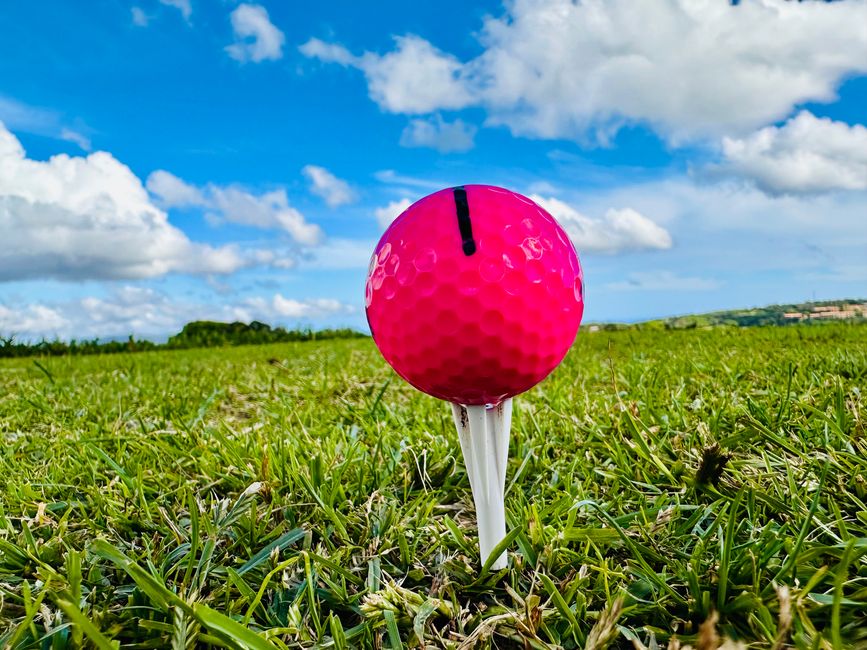
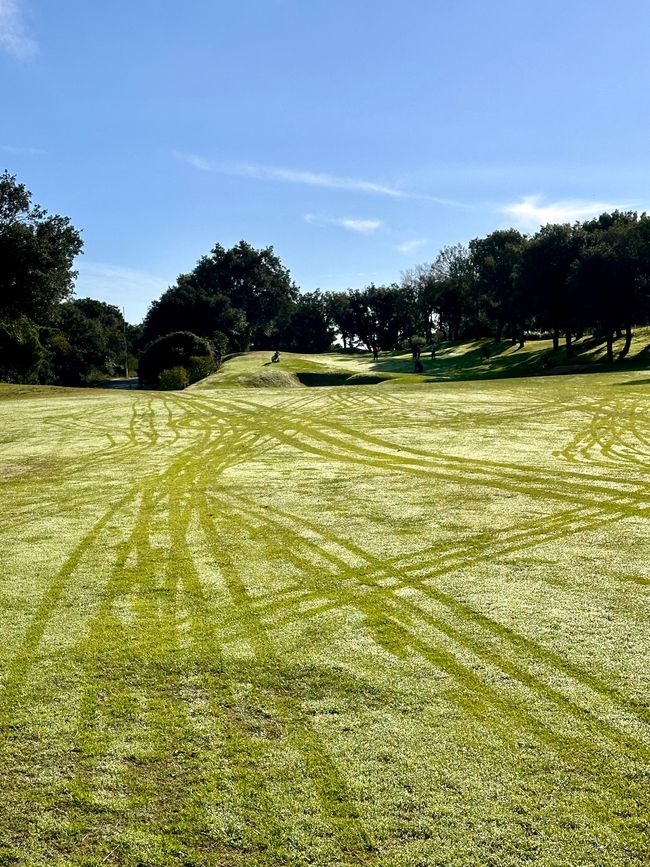
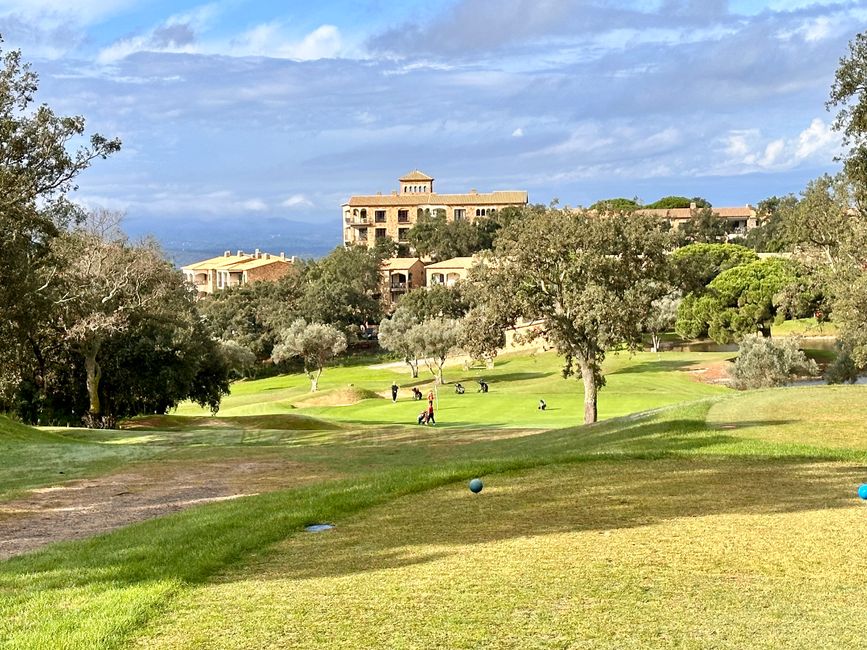
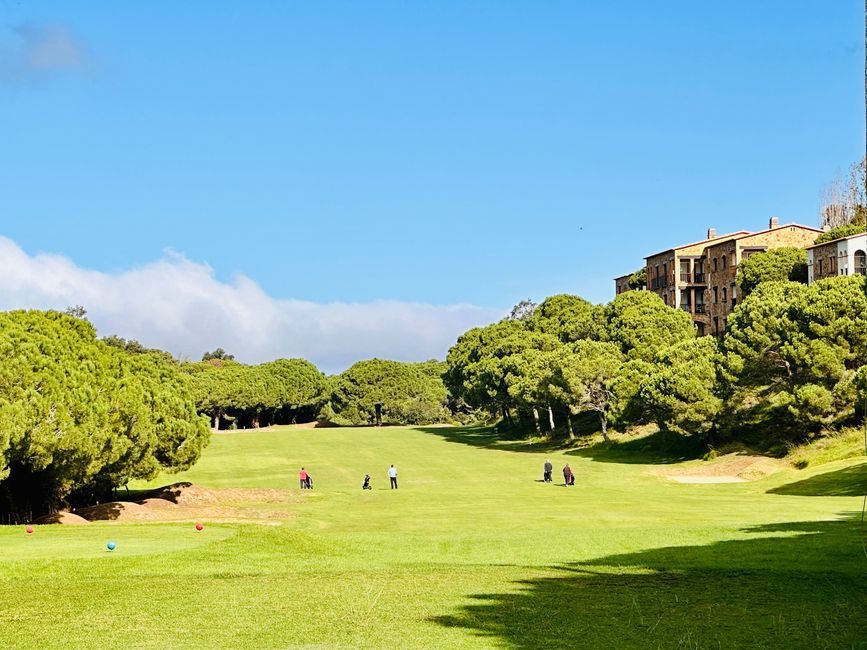
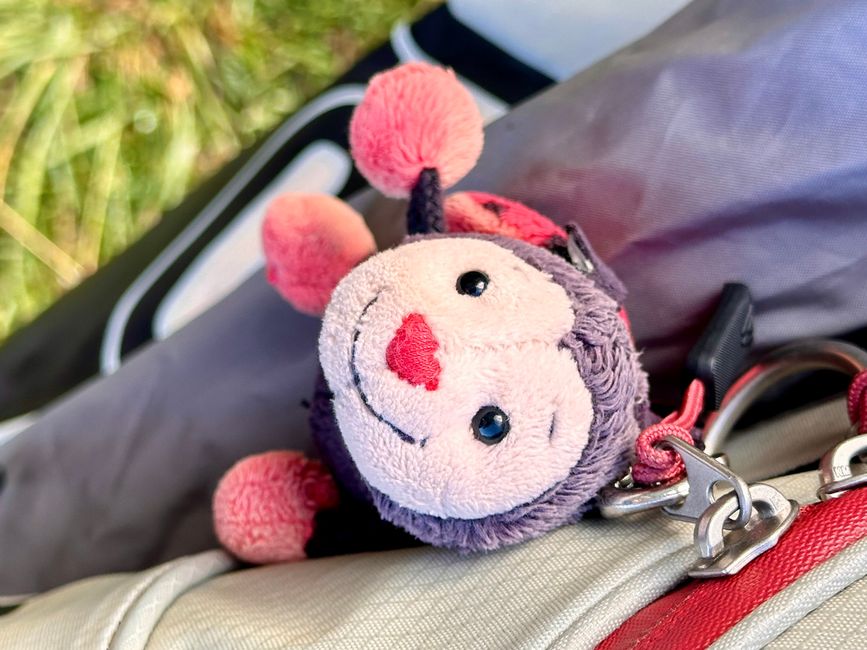
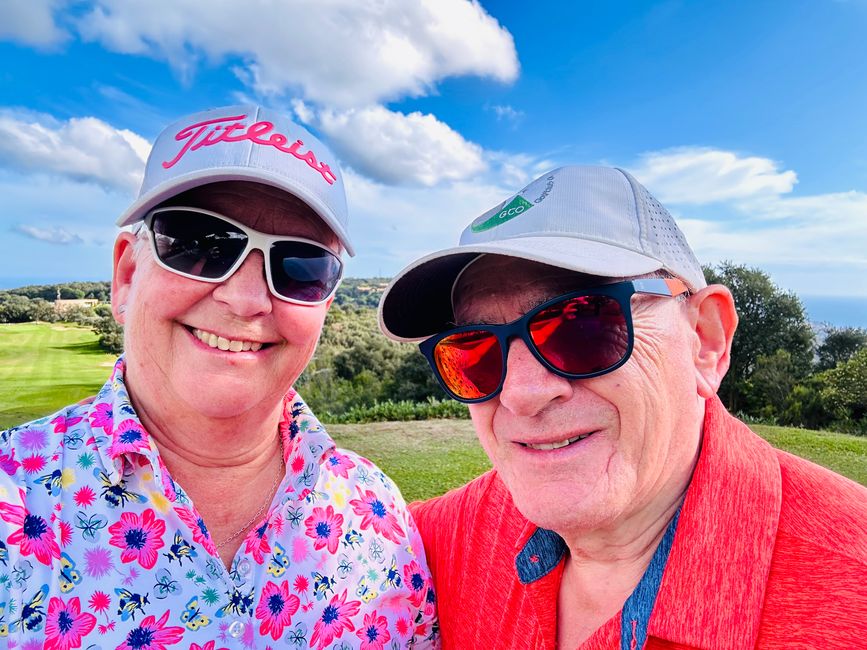
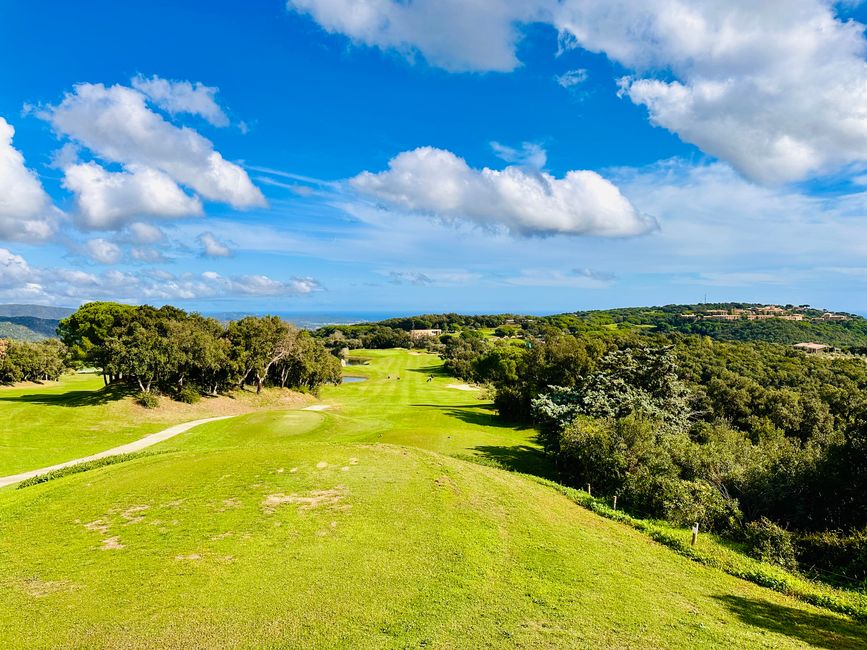
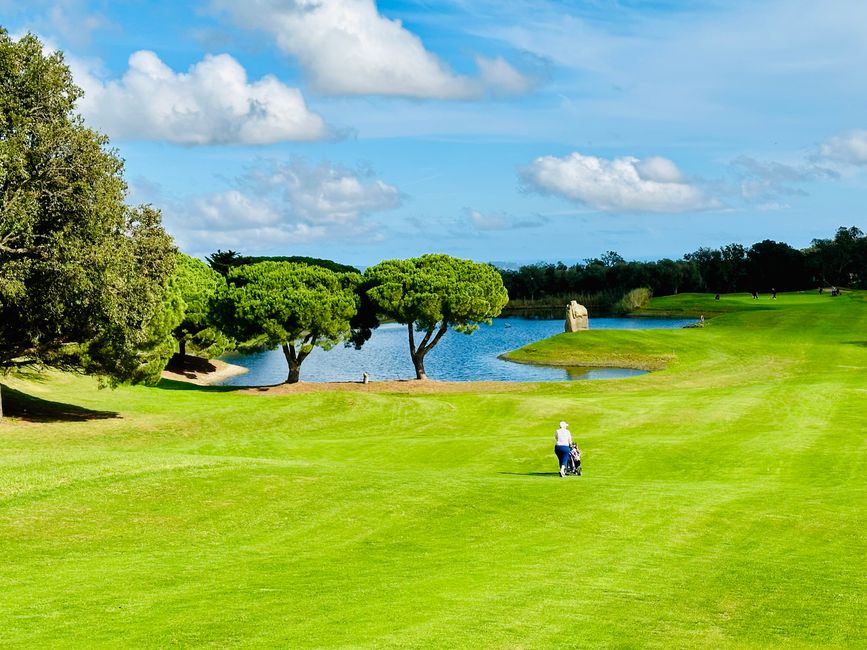
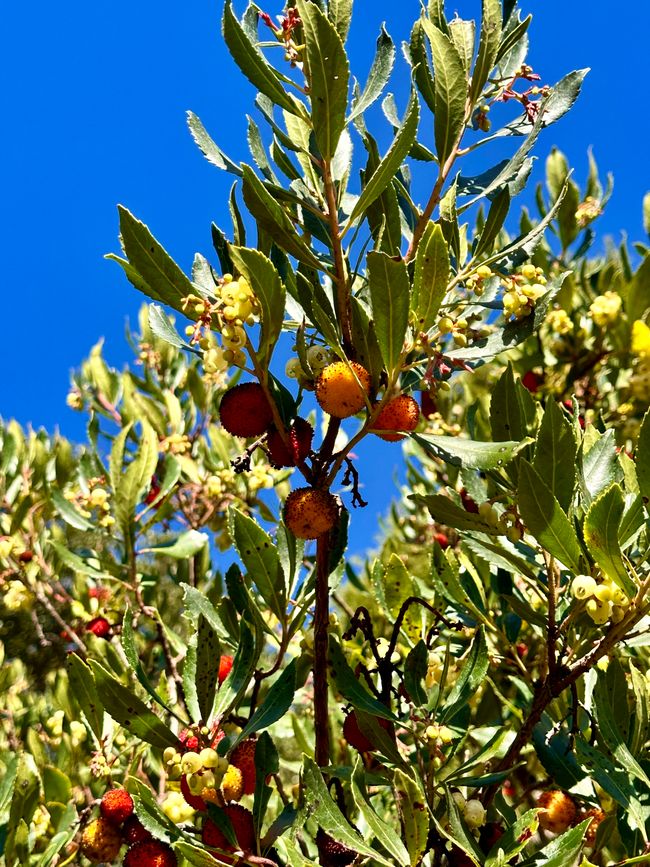
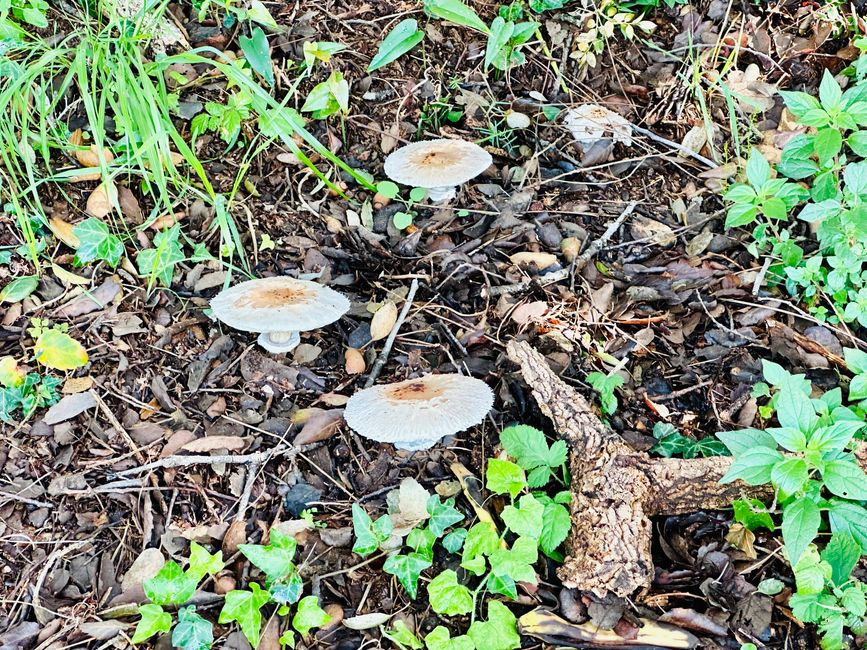
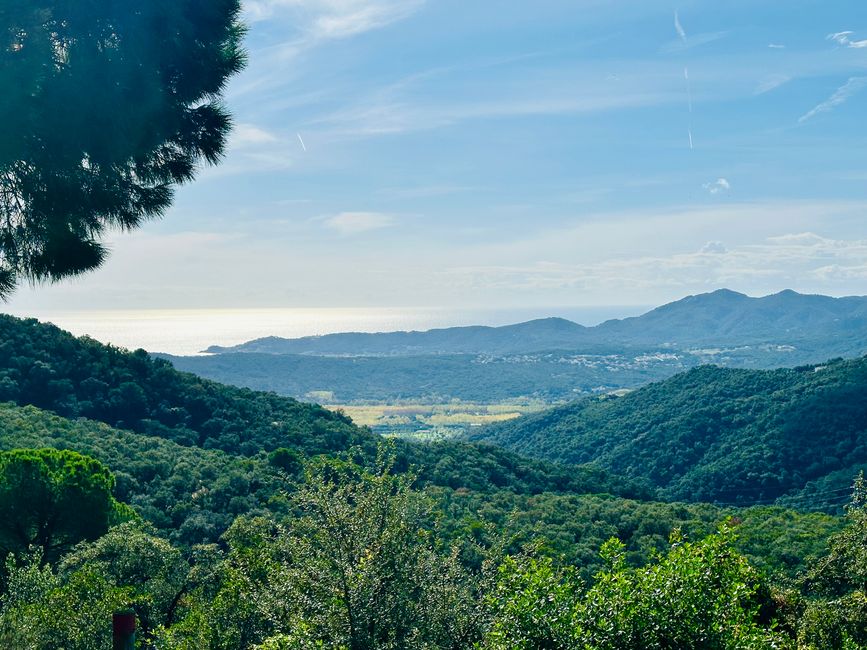
Tilaa uutiskirje
Today the weather was sunny again, just right for another round of golf at our home course Golf Club D'Aro.
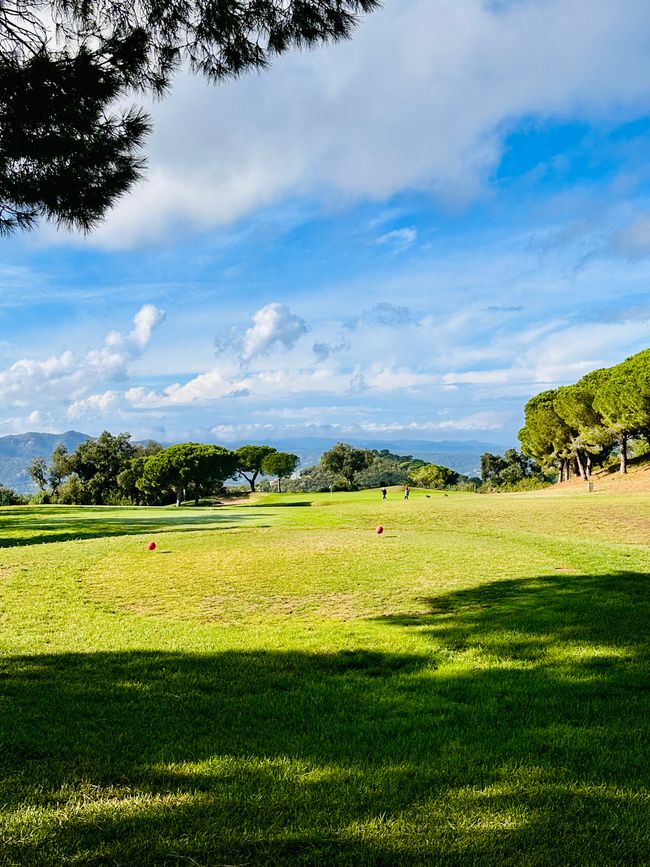
It’s Sunday and the tee times are all booked. It’s moving slowly.
This is already the 6th round at Golf d’Aro, and we are starting to know the holes and have learned which club to use where. This allows us to noticeably improve from round to round.
The choice of club is not unimportant in golf. Therefore, there are again a few explanations available for non-golfers.

According to current golf rules, players may carry up to 14 clubs for a round of golf. The clubs differ by shaft length (measured in inches for golf), loft, design, and material. Essentially, the flight path of the ball is determined by the loft and shaft length: the more loft, the higher and shorter the flight path; the longer the club, the more power can be generated, and the farther the ball goes.
For the tee shot and long strikes on the fairway, woods are used. They are the longest clubs and have the largest clubhead, which is hollow and, despite its name, is no longer made of wood.

Most players have a wood 1 (also called a driver) in their bag and one to three additional woods for shorter distances (wood 3, 5, 7). Personally, for example, I don’t have a wood 3.
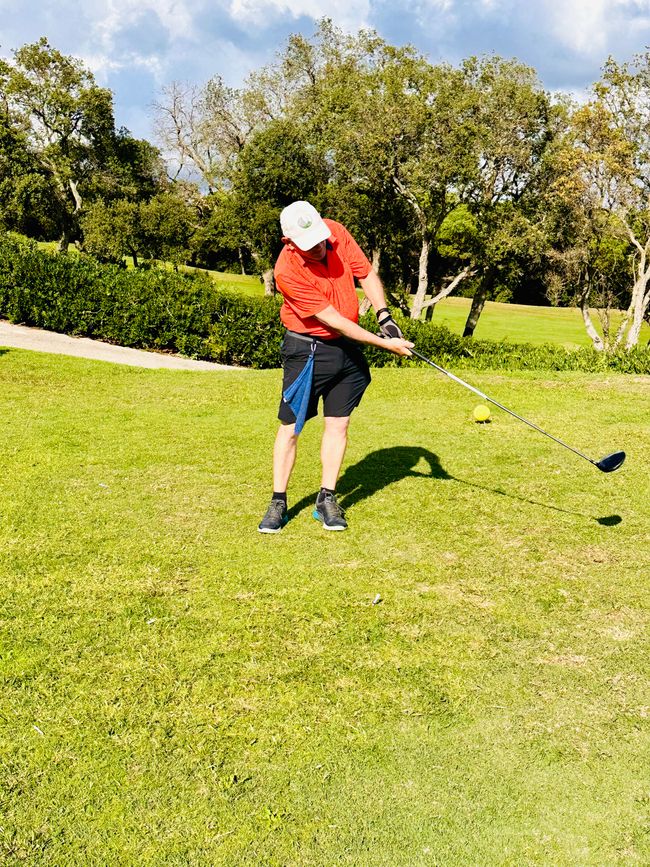
For medium-length shots, clubs called irons are used, which allow for more accurate strikes compared to woods. Irons are the most versatile clubs. It is entirely possible to complete a round of golf with just half a set of irons.
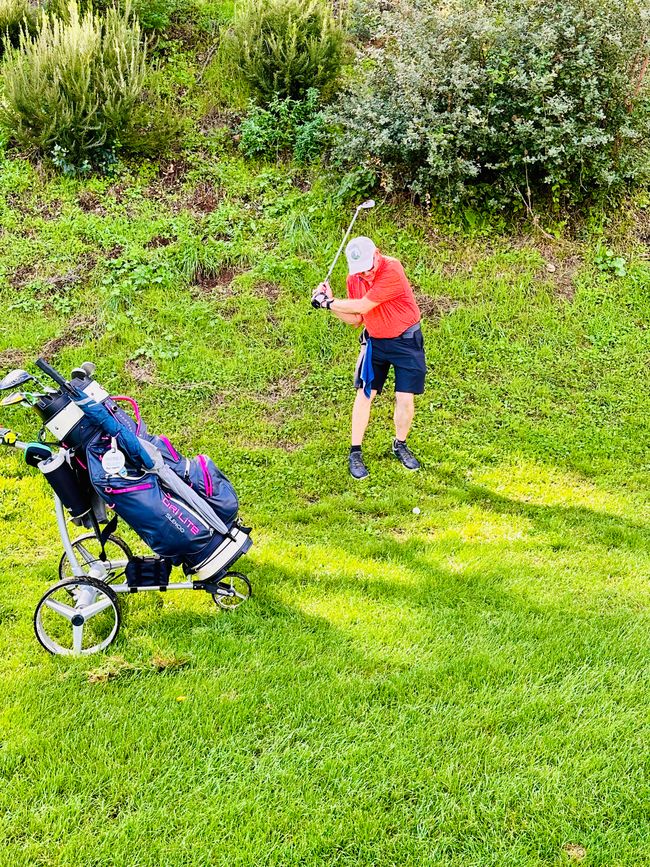
Hybrid or rescue clubs are a mix of irons and woods, offering a compromise between the length of a wood and the accuracy of an iron. Typically, a player has no more than one or two hybrid clubs. I only have one hybrid 5. They usually serve as a replacement for a long iron.
For short shots around the green or for very difficult situations (bunkers, ditches, tall grass), wedges are used. They resemble irons but are shorter and have more loft. A standard set includes at least a pitching wedge and a sand wedge.
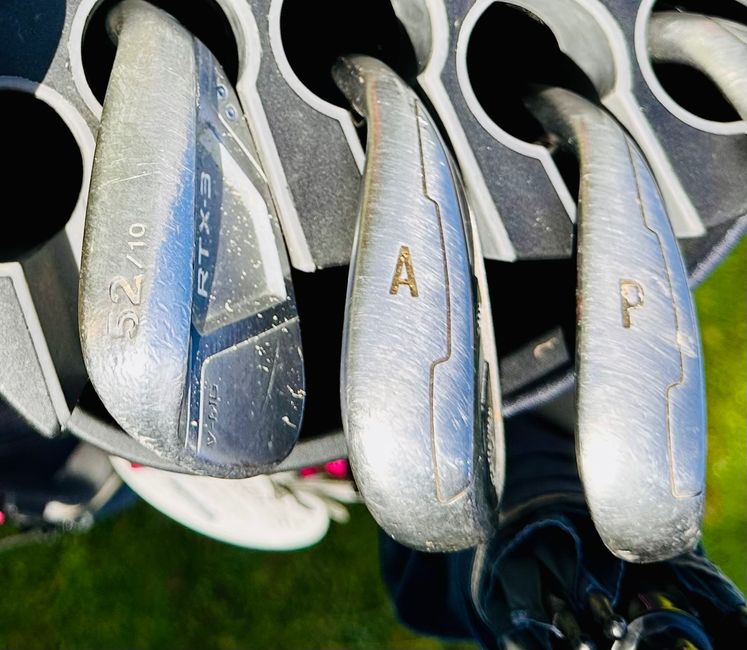
To hole the ball on the green, a putter is used. Playing with this club is accordingly called putting. The ball doesn’t fly through the air like with the other clubs but rolls over the green. The putter is especially important as it is used more often than any other club (the par standard assumes two putts per hole), yet nearly every golf bag contains only one putter.
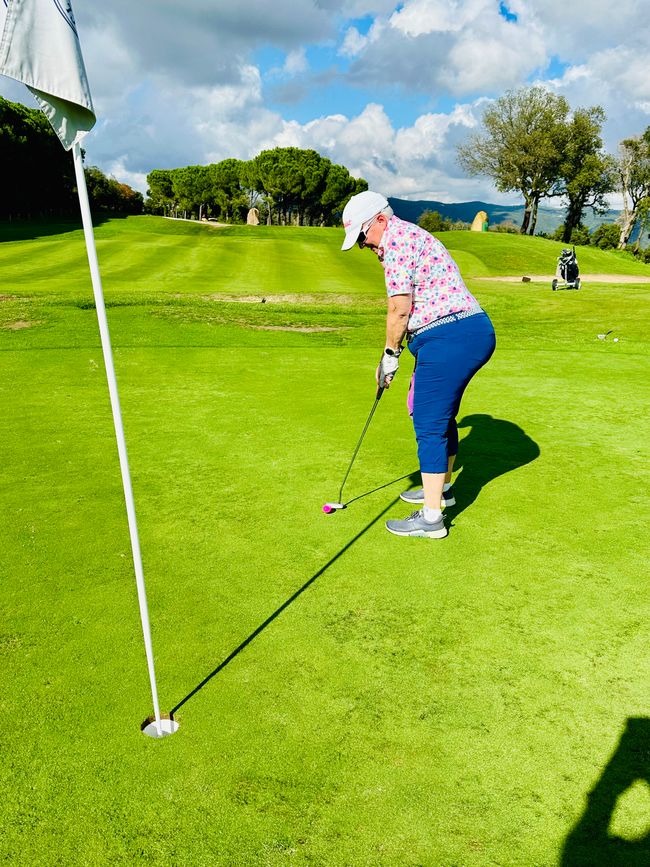
Since it’s moving very slowly, we have plenty of time to admire nature. The strawberry trees along the golf course have started to bloom, and the midday flowers at hole 15 as well.
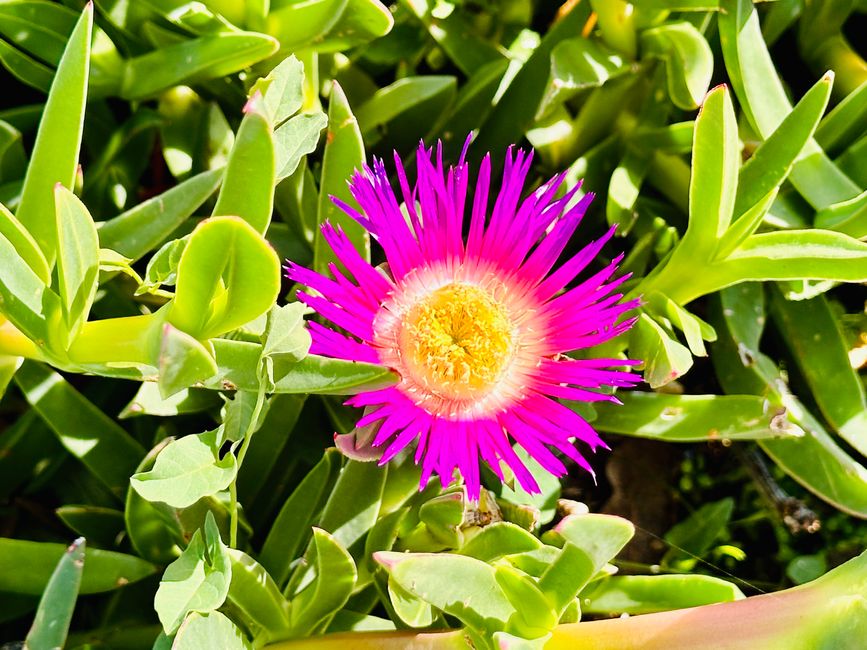
The turtles are sunbathing.
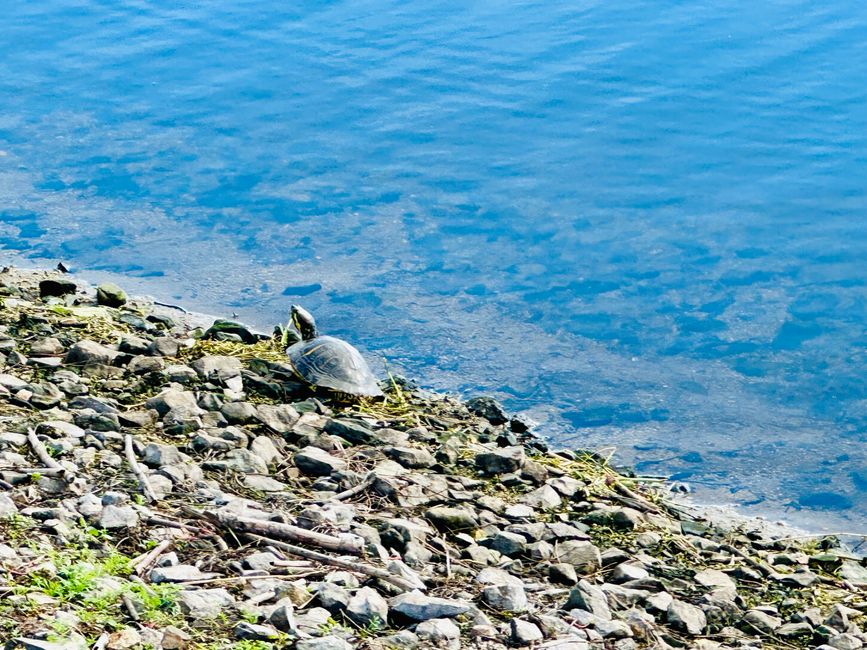
Also impressive is the endless view over the forests, which give the region a special scenic beauty.
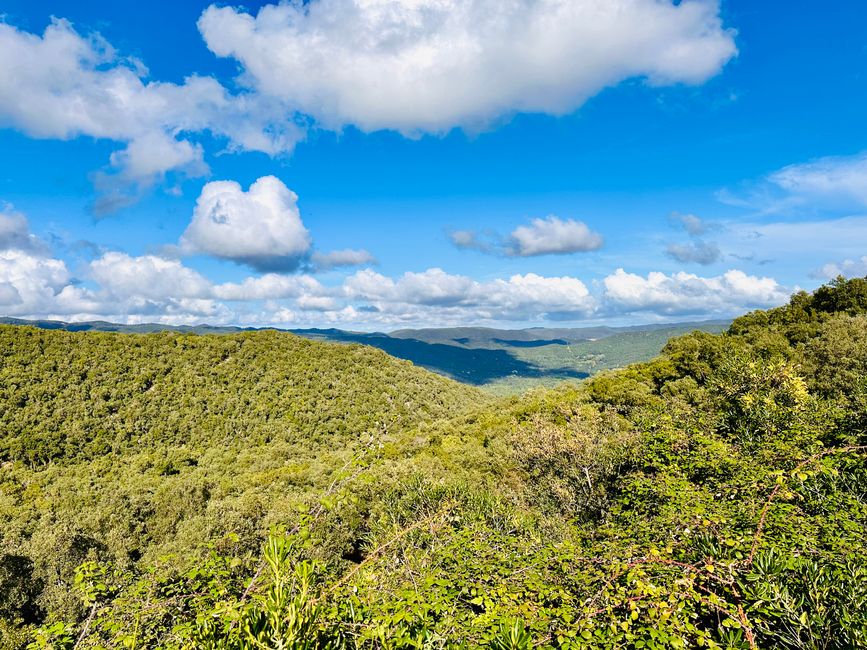
In the nature reserve near Mas Nou and the Gavarres mountains around Platja d’Aro, you will mainly find typical Mediterranean forests that have adapted to the warm, dry climate.
Cork oak forests dominate large parts of the nature reserve and shape the landscape. The cork oak is one of the most important tree species in the region and is known for its thick, fire-resistant bark, which is used for cork production. These trees are well adapted to the Mediterranean climate and thrive particularly in the dry, rocky soils of the Gavarres.
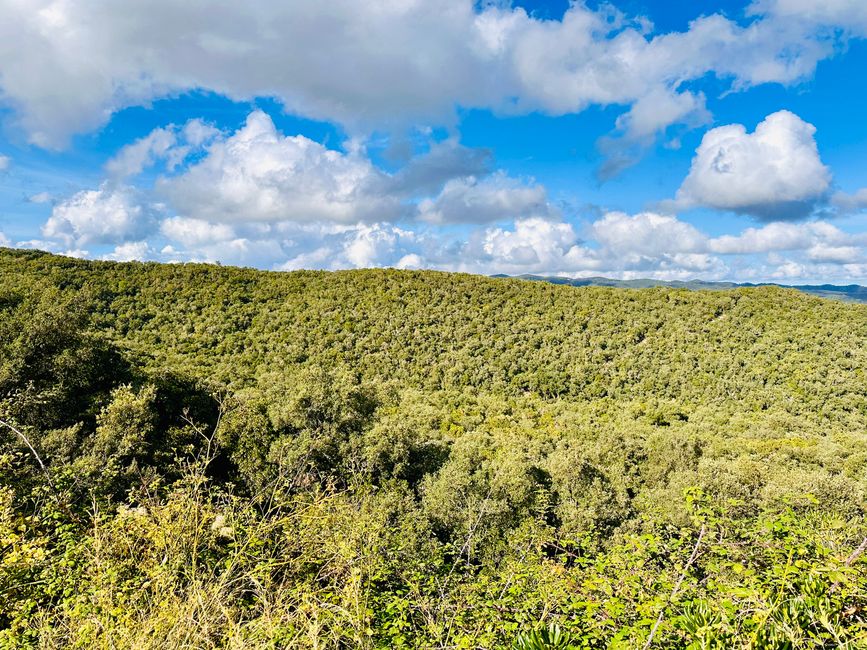
Stone oak forests are also widespread and often found in the shade and slightly cooler spots of the mountains. The stone oak is an evergreen species of oak with small, sturdy leaves that protect it from water loss. The stone oak forms dense, shady forests and is also very fire-resistant, making it resilient to wildfires.
Especially along the coastal slopes and in lower areas of the mountains, you will find pine and fir forests. The Aleppo pine and the maritime pine are the most common types. These pine species are typical of the Mediterranean region. They grow in well-drained soils, can survive with little water, and are also resistant to salty winds from the coast.
These forests not only provide a beautiful backdrop but also create an important habitat for wildlife and contribute to soil stabilization and erosion prevention. They are also of great importance for the preservation of biodiversity and combating the effects of climate change in the region.
Today there is no sunset. On one hand, it was cloudy, and on the other hand, we completely forgot through the winter time that it gets dark an hour earlier. 😉
Tilaa uutiskirje
Vastaus
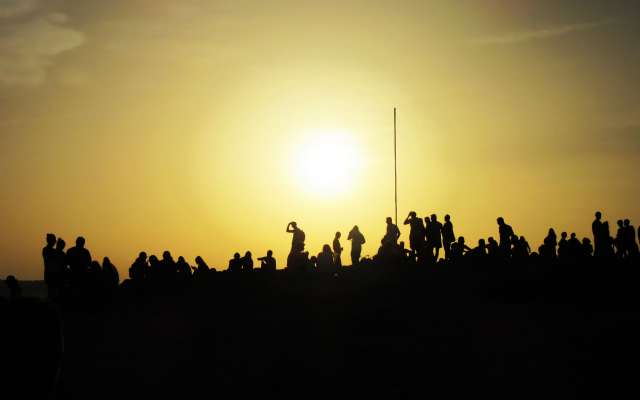
Matkaraportit Espanja
